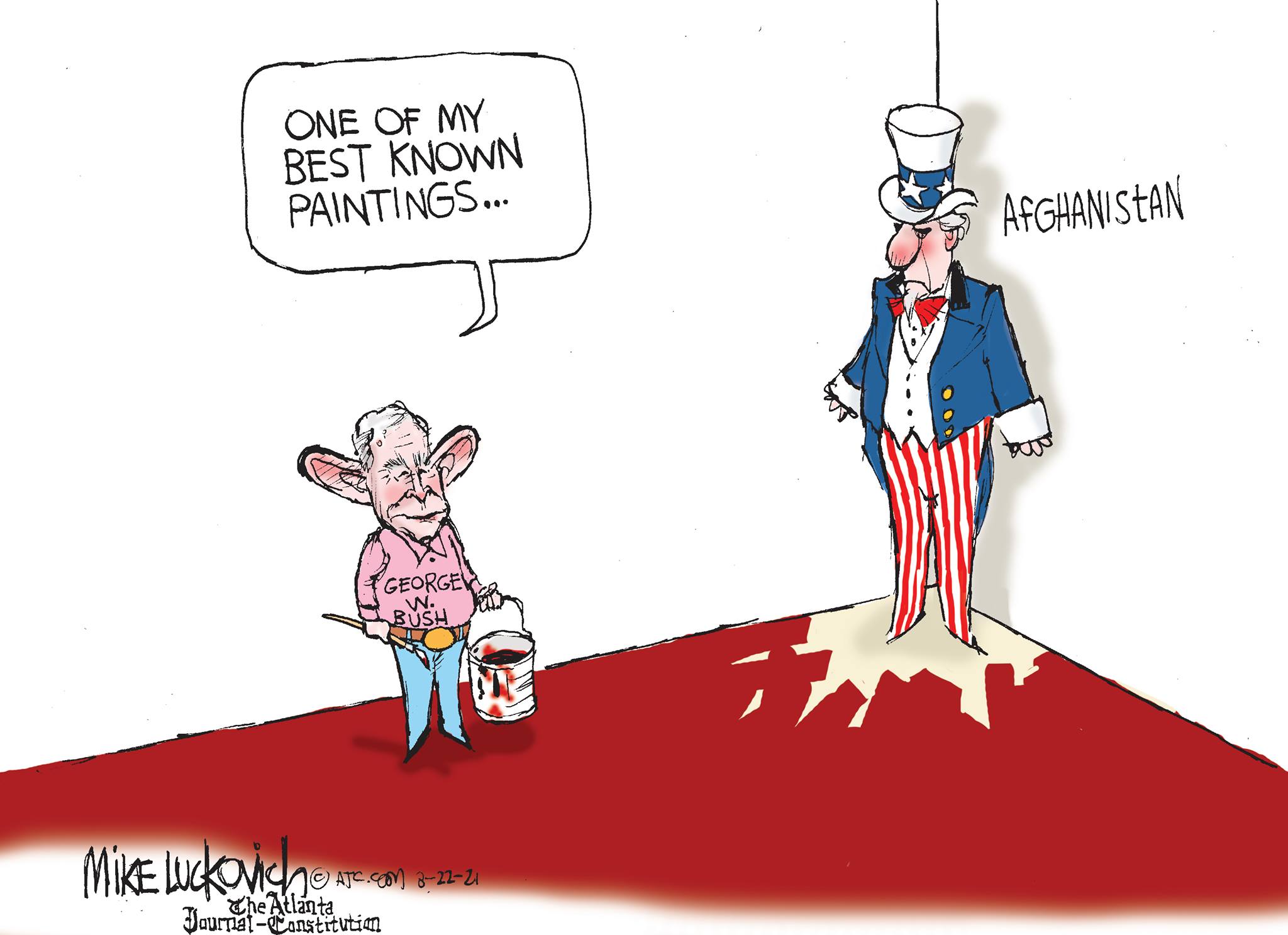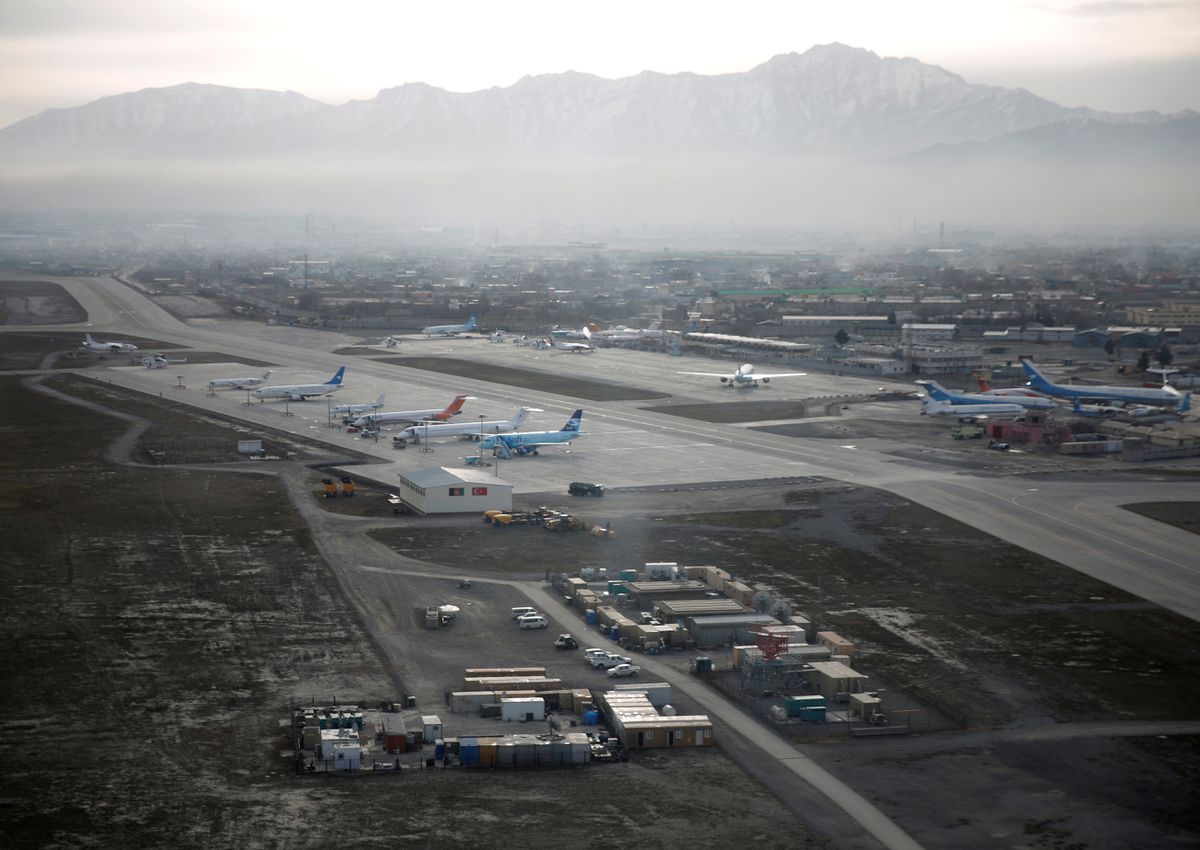The Daily Escape:

Mesquite Flat Sand Dunes, Death Valley, California photo by Gerold Guggenbheul
Wrongo is as tired of writing about Afghanistan as you are reading about it, but the time to say what needs to be said is when people are paying attention. So, let’s talk about the media’s response to Afghanistan.
Yesterday, Wrongo pointed out that out of a combined 14,000-plus minutes of the national evening news broadcast on CBS, ABC, and NBC in 2020, the year Trump made his deal with the Taliban, a total of five minutes were devoted to Afghanistan. Now, many more minutes are focused on the withdrawal from Afghanistan, and much of that is critical of Biden. From Eric Boehlert:
“Led by the New York Times’ and CNN’s frenzied reporting and analysis, the media have gone all in with the narrative that Biden’s presidency sits on the precipice of ruin in the wake of US’s long-expected troop departure from Afghanistan. (Fact: It does not.)”
Various Biden critics are engaging in fantasies about Kabul’s collapse: if only we’d used more force, demonstrated more will, stayed a few months longer, then the Taliban would have adopted a different strategy. Ryan Crocker, a former ambassador to Afghanistan, was sharply critical of the withdrawal of the last 3,500 troops. Fred Kagan, of the American Enterprise Institute, argued that “keeping American military forces in Afghanistan indefinitely” would be “worth it.”
Another NYT column recently said that Biden should “save his presidency” in the wake of the Afghanistan controversy. Biden’s ending an extremely unpopular war and is bringing the troops home, at least so far, without a single US casualty. But he must “save his presidency”?
It is a huge relief to find out America has been filled all along with people who know, with 100% certainty, how to properly extract the US from Afghanistan.
From Cheryl Rofer: (emphasis by Wrongo)
“As we try to look past the abysmal reporting on the evacuation from Afghanistan, one of the things that strikes me is the inability or unwillingness of reporters to visualize what is required to make things happen in the real world.”
More:
“An evacuation takes coordination among an enormous number of entities – getting the right people in the right place at the right time, along with the airplanes and their fuel, which involves other airports, air controllers, logistics people keeping track of where the planes are, and the military personnel helping out….And then there are the State Department people who are checking identities and preparing paperwork to get refugees into the US.”
Rofer closes with: (brackets by Wrongo)
“The first inclination of too many reporters seems to be to find someone to backbite someone else. It should be to understand the [physical] situation…”
The criticisms downplay the impact of the deal with the Taliban. Once the Taliban had secured an agreement that the US would be pulling out, and that forces would be reduced to minimal numbers BEFORE Biden’s presidency began, they merely had to wait. Trump’s special skill as president was that he accomplished nothing, or he made things much, much worse, in every way.
So far, the airlift from Afghanistan is performing better than the news media’s record over the past four years, when they were reporting on everything Trump said. Now they’re saying that Biden can’t eat the shit sandwich Trump prepared so well.
But here’s a subject that has gone unnoticed by the media: the cost of caring for our veterans. The Watson Institute researches the cost of the Afghan war. They just released an update on the ongoing costs of caring for the military who were injured in Iraq and Afghanistan:
“Between 2001 and 2050, the total costs of caring for veterans of the post-9/11 wars are estimated to reach between $2.2 and $2.5 trillion….This estimate is double the author’s previous projections in 2011 and 2013.”
They say that most of the costs associated with caring for post-9/11 veterans have yet to be paid and will continue to accrue long into the future. The costs are $1 trillion higher than earlier estimates for two primary reasons. First, the number of post-9/11 veterans with disabilities is far higher than originally projected. More than 40% of the troops who have served in Iraq and Afghanistan have already been approved to receive lifetime disability benefits.
Second, the VA has ramped up their levels of responsiveness. They have expanded the geographical footprint of VA health care, hired thousands of additional medical and support personnel, and expanded clinical specialties in areas such as women’s health, traumatic brain injury and post-traumatic stress disorders (PTSD).
These expenditures are already baked into the system. We should be focusing on the fact that these costs will DOUBLE America’s projected military expenses of $2 trillion for Afghanistan.
The post-9/11 wars were the first major test of our all-volunteer military. On September 11, 2001, roughly one in every four American men were military veterans, but over the past two decades, the number of veterans in the population has declined to fewer than one in eight.
Barring reinstituting the draft, the number of military in our population will continue declining. The Census Bureau projects that the number of veterans will be just 1 in 14 by 2040. By 2050, when the costs of providing medical care and benefits for veterans of the post-9/11 wars reach their peak, few living Americans will have direct relatives who were involved in these wars.
So, two hidden costs of the Afghanistan war: A lazy media, and a 40+% casualty rate which is what happens when you continually redeploy the same soldiers into a 20-year long battle.

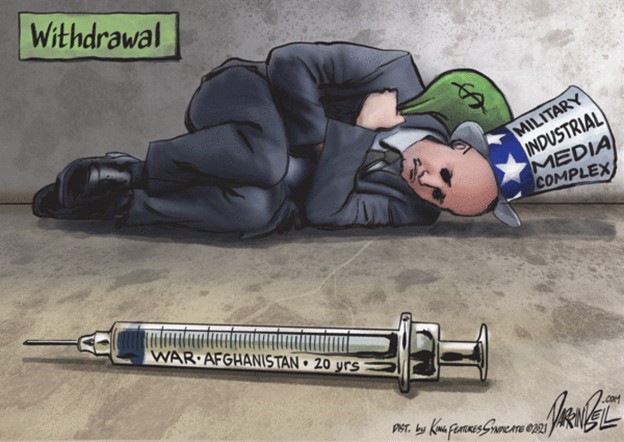
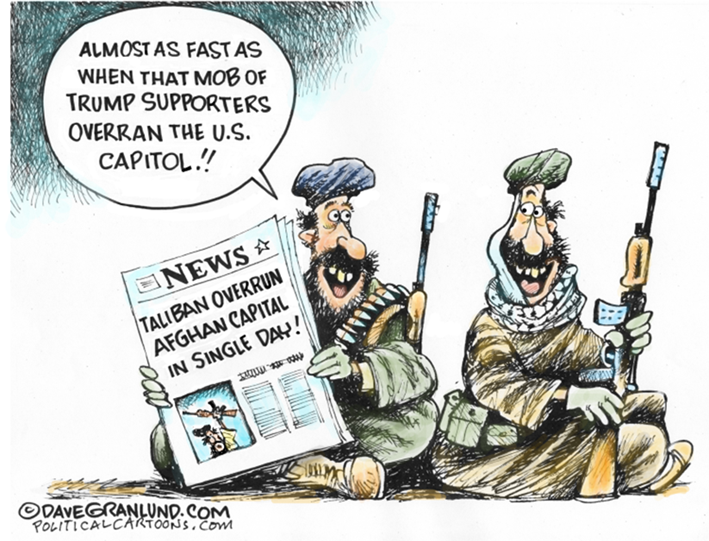
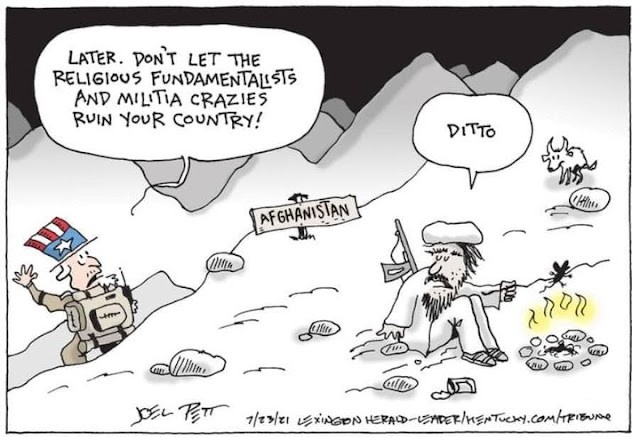
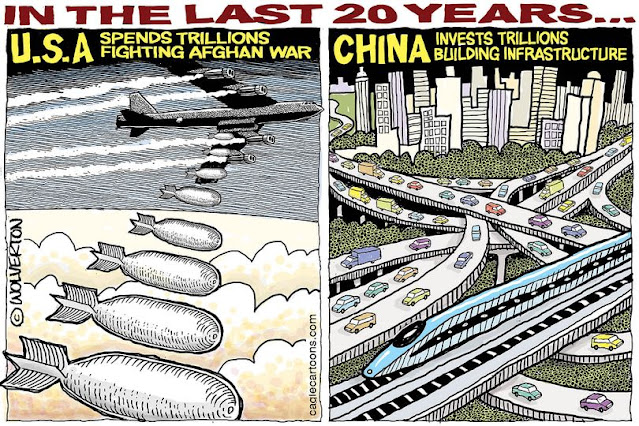
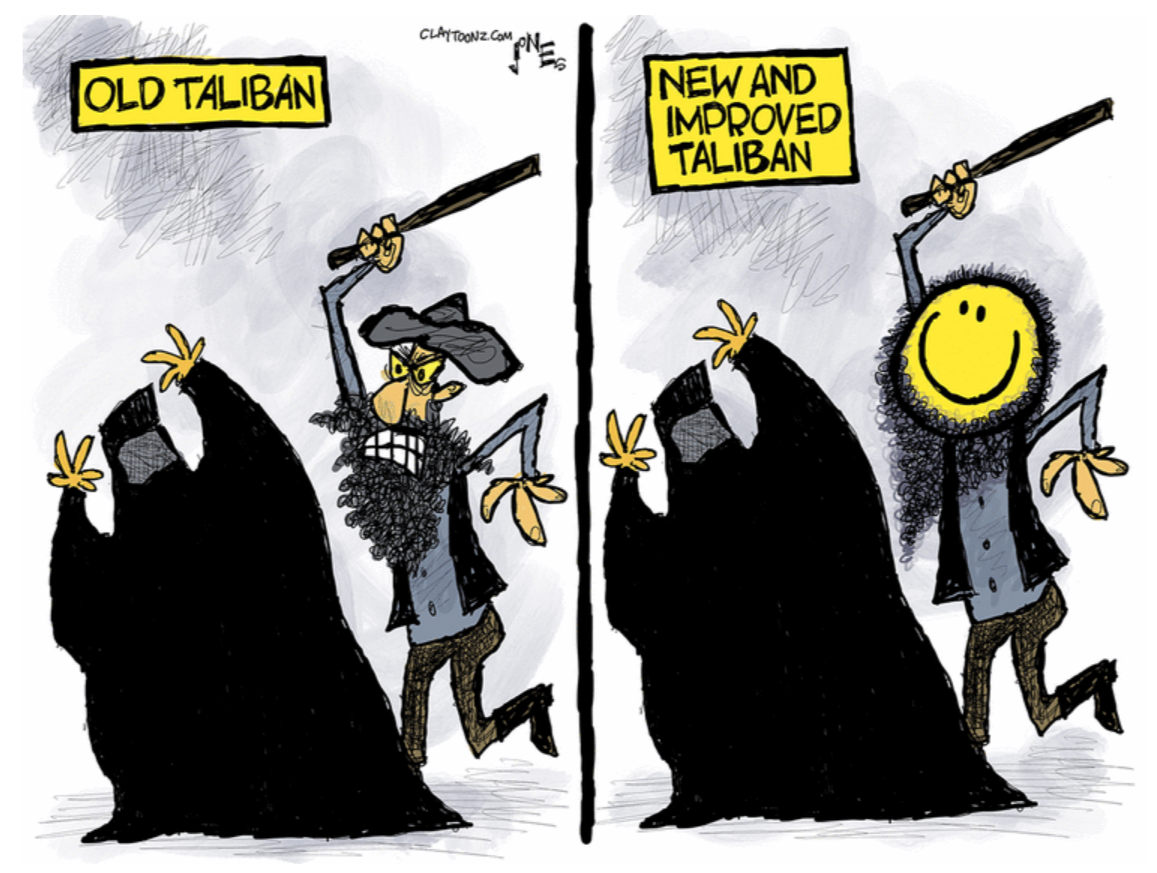 Bush famously painted us in the corner of both Iraq and Afghanistan:
Bush famously painted us in the corner of both Iraq and Afghanistan: